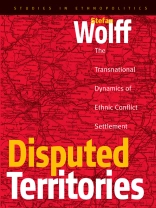Ethnic conflicts have shaped the 20th century in significant ways. While the legacy of the last century is primarily one of many unresolved conflicts, the author contends that Western Europe has a track record in containing and settling ethnic conflicts which provides valuable lessons for conflict management elsewhere. Focusing on ethno-territorial crossborder conflicts in Alsace, the Saarland, South Tyrol, and Northern Ireland, Andorra and the New Hebrides, the author develops a four-dimensional analytical framework that synthesizes the distinct factors that influence the complex relationship between host-state, kin-state, actors in the disputed territory, and in the international context.
Зміст
List of Tables
List of Chronologies of Key Events
List of Overviews of Stability Criteria
Preface
Acknowledgements
PART I: A FRAMEWORK FOR THE STUDY OF ETHNO-TERRITORIAL CROSS-BORDER CONFLICTS AND THEIR SETTLEMENTS
Chapter 1. Conceptual Clarification: External Minorities and Disputed Territories
Chapter 2. Possible Conflict Settlements for Ethno-Territorial Cross-Border Conflicts
Chapter 3. Conclusion of Part One: Which Factors Influence Ethno-Territorial Cross-Border Conflicts and the Stability of Their Settlements?
PART II: CASE STUDIES
Chapter 4. Alsace
Chapter 5. The Saarland
Chapter 6. South Tyrol
Chapter 7. Northern Ireland
Chapter 8. Condominium Status as a Settlement for Ethno-Territorial Cross-Border Conflicts
PART III: ACHIEVING CONFLICT SETTLEMENTS AND MANAGING THEIR STABILITY
Chapter 9. Conditions Conducive to Conflict Settlement and Settlement Stability
Chapter 10. Conclusion
References
Index
Про автора
Stefan Wolff was educated at the University of Leipzig, Germany. He received an MPhil from the University of Cambridge and a Ph D from the London School of Economics. He is currently Chair in Political Science at the University of Nottingham.












